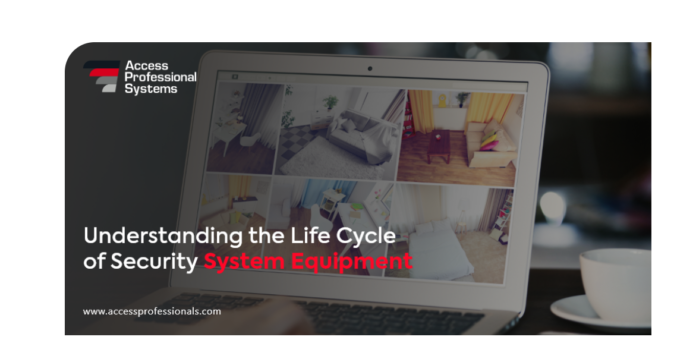In the fast-paced world of technology, even our most robust and reliable equipment undergoes wear and tear. When we talk about security systems, this concept becomes all the more crucial, as the safety of our assets and loved ones might be at stake. This blog aims to shed light on the lifecycle of security system equipment, emphasizing the significance of timely upgrades and maintenance.
The Lifespan of Different Security System Components
- Security Cameras: Modern-day security cameras are designed to last. However, even the most rugged cameras have a finite lifespan, often ranging between 4 to 7 years. Over time, the camera sensors can degrade, resulting in reduced picture quality. Moreover, technological advancements introduce newer features such as better low-light performance, higher resolutions, and AI-based analytics. Thus, while your camera might still function after its intended lifecycle, it might not offer the best security capabilities available.
- Automatic Gates: The lifecycle of automatic gates is largely dependent on their usage frequency and maintenance. Typically, an automatic gate can last anywhere from 10 to 20 years. Proper maintenance, which includes periodic inspections by access professionals, ensures that the gates’ mechanical parts remain in top condition. The electrical components, however, might need replacement sooner than the mechanical parts.
- Security System Controllers: This encompasses the brains behind your security system. Depending on the quality and technology, these controllers can last between 5 to 10 years. Factors that can affect their lifespan include power surges, technological obsolescence, and physical wear and tear. It’s essential to keep the software updated and occasionally consult with access professionals to ensure the system is running optimally.
The Role of Access Professionals
Maintaining security equipment isn’t a DIY task. It requires expertise, as the systems are intricate, and a small oversight can result in significant security lapses. This is where access professionals come into play. They offer:
- Routine Inspections: Periodic checks by experts can spot issues before they escalate, ensuring your security equipment remains in prime condition.
- Upgrades and Replacements: As technology evolves, access professionals can guide you on upgrading to newer systems or components, ensuring you always have the best security measures in place.
- Repairs: In the event of a malfunction, these experts can quickly fix the issue, minimizing downtime and potential security risks.
When Should You Consider Replacing or Upgrading?
While the above-mentioned lifespans give a ballpark figure, the actual performance can vary. Here are signs that indicate you might need to consult with access professionals for a potential upgrade or replacement:
- Degraded Performance: Reduced image quality in security cameras or slower response times in automatic gates are tell-tale signs.
- Frequent Repairs: If your equipment needs frequent fixes, it might be nearing the end of its lifecycle.
- Technological Obsolescence: If your security system no longer supports the latest software updates or lacks newer features, it’s time for an upgrade.
- Physical Damage: Any visible damage, especially to external components like cameras and gates, requires immediate attention.
Conclusion
In the realm of security, complacency can be costly. Understanding the lifecycle of your security system equipment isn’t just about getting the most out of your investment; it’s about ensuring that your premises remain safe and secure at all times.
Whether it’s the ever-watchful eye of a security camera, the robust barrier of automatic gates, or the intricate workings of a security system controller, regular checks and timely interventions by access professionals are paramount.
Remember, security isn’t a one-time investment; it’s an ongoing commitment. Stay updated, stay safe!
For a deeper dive into security solutions tailored for your needs, check out our other posts at Access Professionals.








